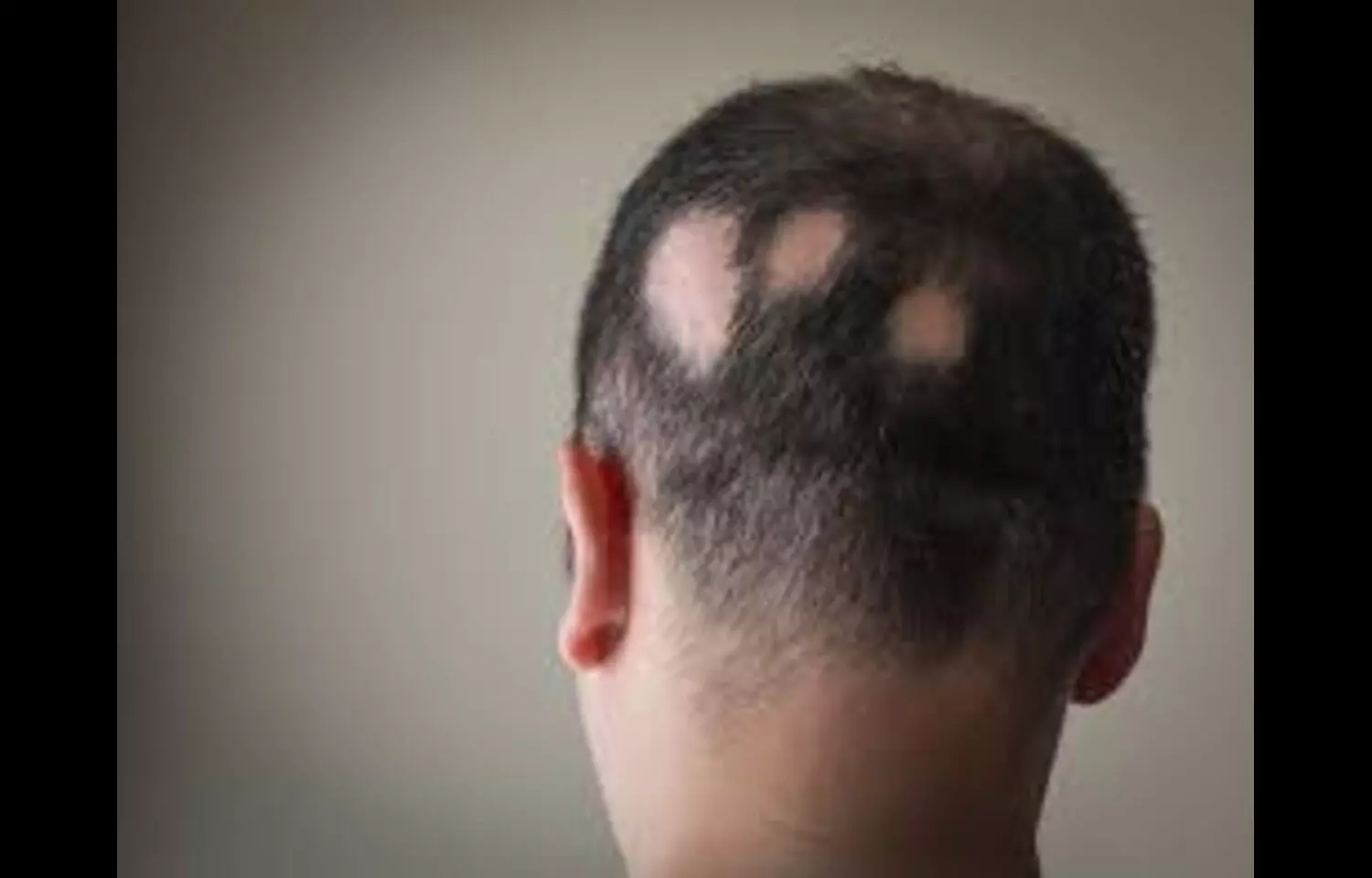Upadacitinib Shows Safety and Efficacy in Adolescents with Severe Alopecia Areata: Study
- byDoctor News Daily Team
- 11 September, 2025
- 0 Comments
- 0 Mins

Alopecia areata (AA) is a chronic, immune-mediated disorder characterized by non-scarring hair loss, with profound psychological and social consequences, particularly among adolescents. While several therapeutic options exist, efficacy remains variable, and safe long-term treatments are limited for younger patients. Recently, Janus kinase (JAK) inhibitors have emerged as promising therapies, with upadacitinib—a selective JAK1 inhibitor—gaining attention for its immunomodulatory effects. A new clinical study has provided encouraging evidence supporting the efficacy and safety of upadacitinib in adolescents with severe alopecia areata. Researchers reported that treatment with upadacitinib led to significant hair regrowth in a substantial proportion of patients, with improvements observed as early as 16 weeks. Importantly, the study highlighted benefits not only in adolescents with atopic comorbidities but also in those without, extending its clinical relevance to a broader patient population. Safety outcomes were also favorable. Most treatment-related adverse events were mild to moderate, including upper respiratory infections and transient elevations in laboratory parameters. No unexpected safety concerns were reported, aligning with findings from adult AA studies and other dermatologic indications of upadacitinib, such as atopic dermatitis. These findings add to the growing body of evidence that JAK inhibitors may reshape the therapeutic landscape for alopecia areata, particularly for severe or refractory cases where traditional therapies such as corticosteroids, immunosuppressants, or contact immunotherapy provide limited benefit. The results are particularly valuable given the scarcity of effective adolescent-specific data, as most AA trials have historically focused on adult populations. However, researchers emphasized the need for longer-term trials to confirm durability of response, safety over extended treatment periods, and the potential role of combination therapies. Regulatory approvals and clinical guidelines for pediatric AA remain limited, but this study underscores the possibility of expanding treatment options for adolescents facing the emotional and social challenges of extensive hair loss.
Disclaimer: This website is designed for healthcare professionals and serves solely for informational purposes.
The content provided should not be interpreted as medical advice, diagnosis, treatment recommendations, prescriptions, or endorsements of specific medical practices. It is not a replacement for professional medical consultation or the expertise of a licensed healthcare provider.
Given the ever-evolving nature of medical science, we strive to keep our information accurate and up to date. However, we do not guarantee the completeness or accuracy of the content.
If you come across any inconsistencies, please reach out to us at
admin@doctornewsdaily.com.
We do not support or endorse medical opinions, treatments, or recommendations that contradict the advice of qualified healthcare professionals.
By using this website, you agree to our
Terms of Use,
Privacy Policy, and
Advertisement Policy.
For further details, please review our
Full Disclaimer.
Recent News
Ketogenic diet may protect against stress experien...
- 03 November, 2025
STORM-PE Trial: Mechanical Thrombectomy Shows Supe...
- 03 November, 2025
AIIMS INI CET January 2026 admit cards released
- 03 November, 2025
3 pharma students drown in Payyambalam beach in Ke...
- 03 November, 2025
Daily Newsletter
Get all the top stories from Blogs to keep track.


0 Comments
Post a comment
No comments yet. Be the first to comment!